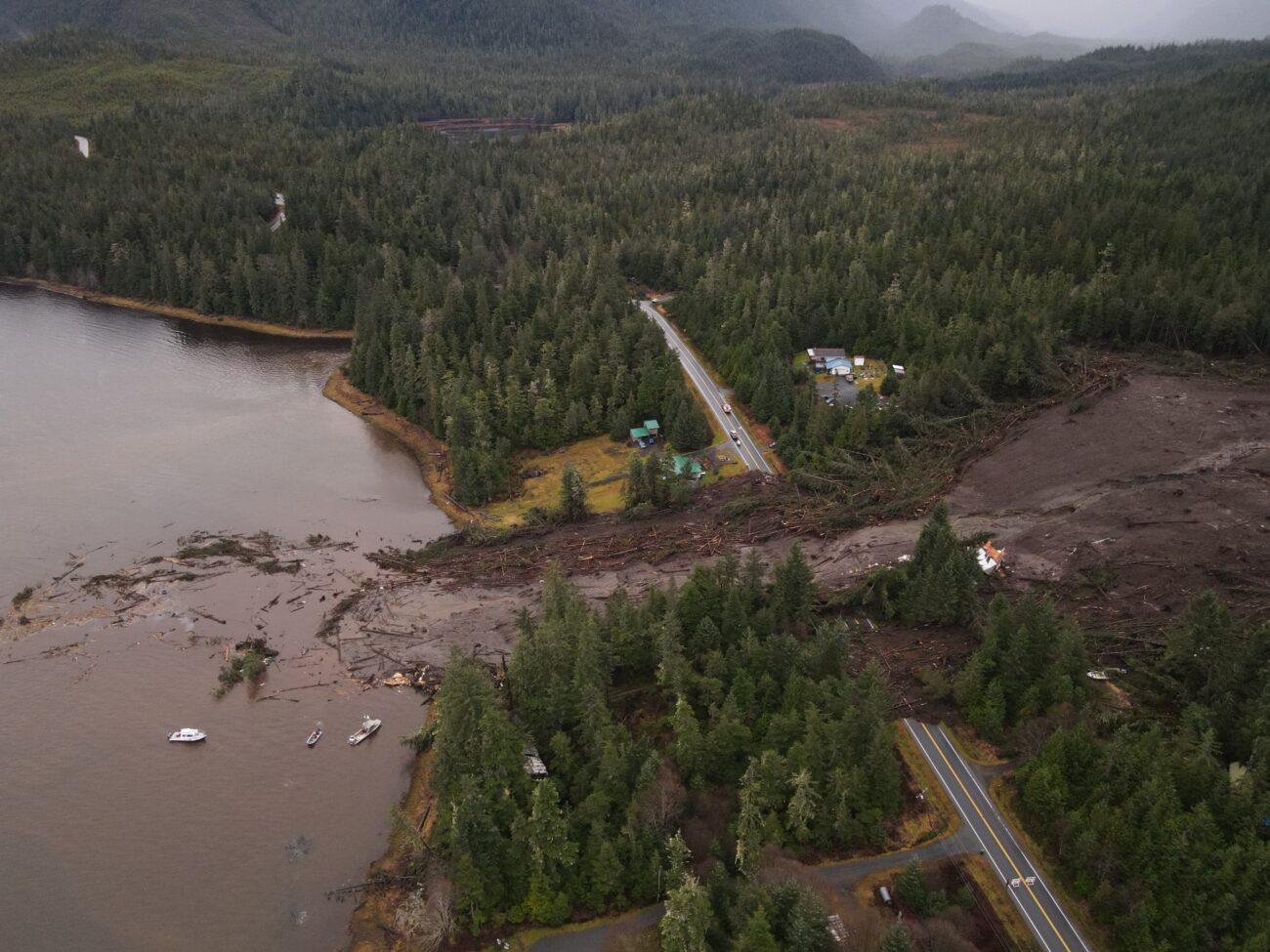
The Biden Administration approved a disaster declaration to Wrangell’s Tribal government on March 15. It’s for the deadly landslide that happened last fall. This is the first such declaration for an Alaska tribe.
After Wrangell’s landslide devastated its community on November 20, the Wrangell Cooperative Association (WCA) swiftly moved into action. They applied for federal assistance.
Tribal Administrator, Esther Aaltséen Reese, said it felt surreal when she found out they received the disaster declaration. Their persistence through the application process worked.
“When we went through the process, we just kept hitting barrier after barrier,” she said. “I didn’t really hold high hopes that we would get through this successfully. But what I was hoping was that even though it might be too late for Wrangell, it wouldn’t be too late for our brothers and sisters across the state of Alaska.”
“Historic model for our Tribal brothers and sisters”
Declarations like these are rare. Out of 574 federally recognized tribes in the whole nation, this is only the fourth to offer individual assistance. A statement from the White House said the funds from the Federal Emergency Management Agency (FEMA) will aid Wrangell’s Tribe in addressing conditions caused by the fatal landslide. This can include low-cost loans to offset uninsured property losses, and grants for temporary housing and home repairs.
“As we’re working through this process, we’re thinking about Wrangell specifically,” Reese said. “How we can help those who are impacted, how we can help clean up the beach below the landslide, but also working collaboratively with FEMA to provide a historic model for our Tribal brothers and sisters.”
Reese said they requested all of Wrangell’s community members be included in the disaster assistance. So, not only Tribal residents are included.
The funds will also go to emergency protection and hazard mitigation measures.
“We specified to FEMA that the community is on the traditional lands of the Stikine Kwan and the Tribe wants to be able to help out all citizens,” Reese said. “So in addition to individual assistance, we are going to be working on the debris removal from the beach below the landslide that was impacted. That has not been cleaned up yet.“
She said WCA has a strong partnership with the City and Borough of Wrangell. The landslide flowed over the highway and into the water about 11 miles south of town. The city and the state cleaned up the debris to the high tide line along the beach. They did not clean up anything below it though. Reese said there are hazardous materials there that pose a threat to residents, fish and wildlife.
“The areas around that beach have been historically significant for the Lingít residents of the Stikine Kwan,” she said. “In 2018, our Earth branch department completely mapped that beach. It’s an area that’s rich in clams and butter cockles.”
WCA strives to include subsistence foods for individual assistance
Reese said even though it was wonderful to work with FEMA, some of the programs’ aspects aren’t necessarily tailored to Alaskan tribes. These aspects gear more towards large land-based tribes in the Lower 48.
“Current regulations don’t take into account the importance of traditional subsistence foods,” she said. “So for example, if you had a member that had a freezer full of our wonderful foods from here on our land, and that was lost, the cost of the freezer would be covered, but not the cost of the contents, which is astronomically more valuable.”
Wrangell’s Tribe strives to change regulations so individual assistance will cover traditional subsistence foods for impacted people. She hopes this could benefit other Alaskan communities if they experience a disaster in the future.
She said that Wrangell is a place of historic change. Traditionally it is the lands of the Stikine Kwan where the largest clans in southeast Alaska have lived. Reese said that Tribal citizens have successfully fought segregation here and they are trying to heal from the troubling memory of boarding schools.
“Wrangell definitely has been a place of historic change,” she said. “I am really happy to be a part of just another piece of forward movement in this wonderful community by receiving this historic presidential disaster declaration.
The State of Alaska offers up to $42,500 in individual assistance. Now with FEMA assistance, the Tribe can potentially have access to up to twice that amount. She encourages impacted Wrangell citizens to apply.
A press release from The White House states that those who experienced losses in designated areas can apply for assistance at www.DisasterAssistance.gov. They can also call the number specifically for Alaska at 1-866-342-1699 or by using the app.











